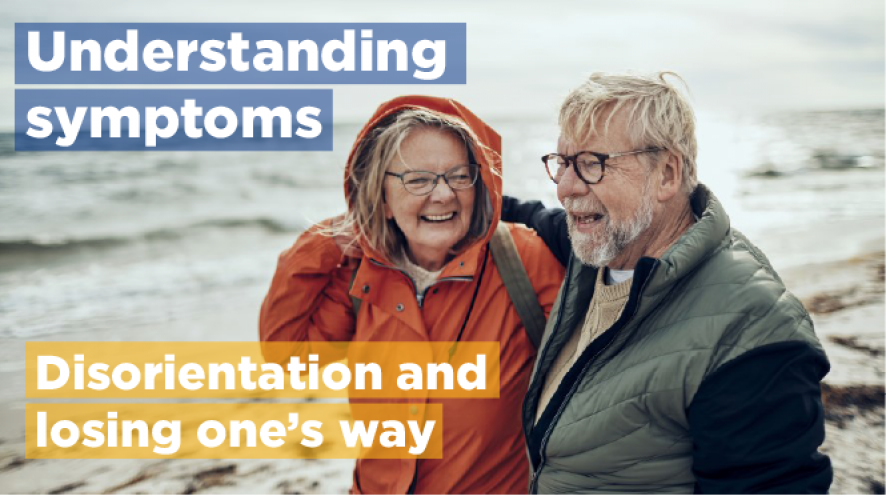Disorientation and losing one's way
Disorienting symptoms of dementia can cause a person living with dementia to walk away from home unattended, with the risk of becoming lost.

Overview
There are different kinds of losing one's way, often referred to as "wandering".
Active wandering includes pacing, searching for something or attempting to keep busy.
Passive wandering occurs when the person seems to pace aimlessly and be easily distracted.
Possible causes
- Stress and anxiety
- Inability to recognize people, places or objects
- Desire to fulfill former obligations
- Boredom
- Searching for something familiar
- Her need to find the bathroom, a special person or a lost object
Tips and strategies
- Encourage movement and exercise to reduce anxiety.
- Maintain regular routines.
- Remove visual reminders (coat, purse, hat) from sight.
- Involve him in productive activities.
- Help her connect with familiar items and objects (photos, personal items).
- Reassure where he is.
- Accommodate wandering. It may be the last independent skill she has.
Example
Susan gets up and wanders the halls of her long-term care home throughout the night. She is often found in another resident’s room and is creating a disturbance among those she lives with.
Don't
- Request the nurse give Susan a sleeping pill before bed.
Do
- Address triggers and ask questions about why she might be engaging in this behaviour (i.e. is she in need of the washroom? Is she thirsty? Did she used to get up early in the morning?).
- Make the environment less encouraging to wandering (e.g. put slippers and house coat out of immediate sight).
- Shut the door.
- Ask that a yellow privacy band be placed over her fellow residents’ doors.
- Ensure Susan engages in light exercise throughout the day to increase the need for rest at night.
Shifting focus: Guide to understanding dementia behaviour
This booklet is meant to help family members, friends and caregivers of people with dementia understand behaviours and actions.
It provides information about the following:
- Brain and dementia
- Recognizing and understanding the person’s actions and behaviours
- Supportive strategies
